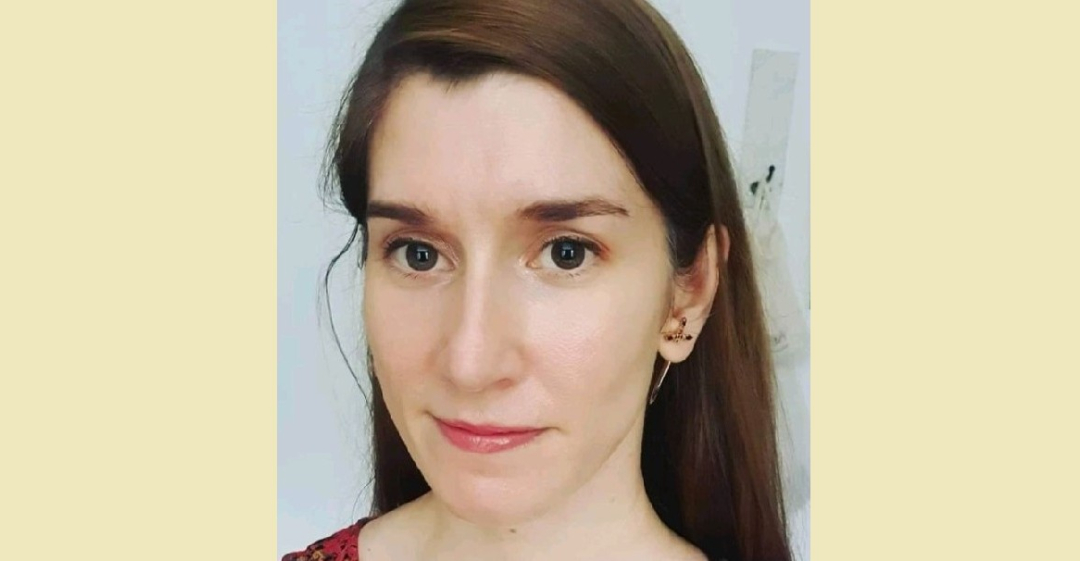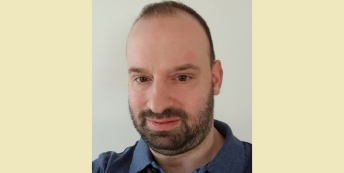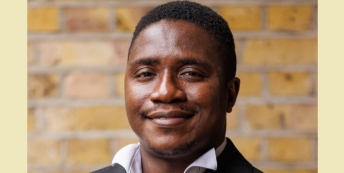“It was years of feeling drained.”

Newly Updated
What work were you doing previously?
I was knee-deep in a 14 year career as a client director at a digital marketing agency.
It was essentially all I'd ever done since I'd graduated.
The role involved handling clients whenever it came to having accounts – making sure that at the end of the day the client wanted to work with us again and that my team wasn't burned out by the end.
What are you doing now?
I'm now in charge of business operations for a tiny startup.
It's a live production and post-production company – a mixture of doing livestream events, and then post production (like video editing).
It's a nice blend of creative fun projects but also more corporate projects that help pay the company's bills.
How did you feel in your work before you decided to make the change?
For quite a long amount of time I knew I wasn't really fitting the role in the way that people externally thought I was.
People would tell me 'you did this job really well', and were helping to push me up the ladder. But internally I had a disconnect of 'but I'm so zapped, and it's stressful'.
Why did you change?
There was no real enjoyment coming from the job.
I was getting paid very well to do the job, but I was just zapped at the end of the day. And that wasn't just a month or two out of the year, it was years of feeling drained.
When was the moment you decided to make the change?
I already knew that I had to make a change in my job, and so I resigned, knowing that I had a three month resignation period.
At that time, I hadn't had a break in my career anyway so for me it was more like 'I'm just going to resign and use this like an unpaid sabbatical, just to get the head space I need'.
I knew that if I stayed in the job, I wouldn't have that time and I wouldn’t make a change.
How did you choose your new career?
After I handed in my notice, the account I was on actually got quiet, so my resignation period at work wasn't very stressful.
So I spent any spare time I had googling about career change and found the Careershifters site. I thought signing up to the Career Change Launch Pad would be a sensible way to use my resignation period.
I knew I needed to take part in a course in order to actually act and make the shift, rather than try to do it by myself (which always lead to overthinking).
For me the course helped me to crystallise my thoughts and verbalise them to others. Getting feedback from people helped solidify that I don't have to do the same career, and helped me to see myself outside of my job.
I conducted informational interviews with people in different roles which were like gold, and I talked to a breadth of people about my ideas.
Are you happy with the change?
Yes.
I really like the people that I work with. In this company, it's small, so any success we have we all celebrate together. We're all in it together, understanding what's realistic and what's not.
Having that breath of fresh air of people being human and understanding 'we'll do as good as we can do', I think that resonates with me a lot.
I feel a lot better about the kind of work we do and the output that we're creating.
And I’m not waking up with dread, or going to sleep feeling dead!
What don't you miss?
For me, I didn't enjoy working in a giant company.
There was a lot of pressure all the time on bringing in money for the accounts we were working on. Once you reached that target, the bar would move higher. You'd never satisfy what the company expected. I don’t miss that.
Why where I’m at resonates so much with me is because I have managed to cut out the exact things that used to rub the wrong way with me in my old work. I didn't want to spend all my time wrapped up in politics because I felt like that was my whole job before. It's great to be removed from that now.
How did you go about making the shift?
During the Launch Pad I reached out to someone I played music with, and she recommended I speak to another person that I actually already knew (but I didn't know what they did for work!).
Our mutual friend's partner workes in live production and live streaming. We connected and he invited me to come by the office to have a chat.
I asked them to explain to me their model and how the business worked. I instantly saw an opportunity around helping them with how they were costing their projects.
It seemed that they were just sticking their finger in the air and saying 'well this is how much this is worth'. If their confidence felt knocked about how expensive they were, then they would just start to cut down their rate. Or if they were feeling brazen, they would say the project would cost more.
I offered to create a costing tool for them to use, as a pro bono project, so that every single time they could put in prices for projects and the tool would tell them how much money they would make so they could see their margin.
I did this for them in a day or two, using an excel sheet.
The tool was mindblowing for them as they hadn't really got to that point yet in how they'd set up their business. I think this helped them realise that they needed someone who isn't a technical person, or a creative person, but someone who's more business-minded.
They were looking to scale up and have more people working on projects than just the core group that they had. The conversation turned into one about 'maybe you can help us out with processes'.
The more I talked with them, the more we could easily find ways for me to take on something that they couldn't do or didn’t have the time to do.
This led to working more days, paid work, and about three-four months later I was working five days a week with them.
How did you handle your finances to make your shift possible?
My main fear was that only massive corporates and design studios that I didn't resonate with could afford to pay me sustainably.
So I challenged this fear by hashing out what the lowest annual income could be for me that I'd be comfortable with to live on, so I could consider employers with smaller budgets. From that I worked with my husband to plan out and budget how things could work if I was on a lower income.
That helped me be more comfortable with shifting to a lower salary.
When I was starting to work with this new company and looking to come on as a paid employee, I had a clear figure in my mind that I knew the company could stretch to and that I'd be comfortable going down to, because I'd already crunched the numbers.
What was the most difficult thing about changing?
Thinking about the financial implications.
This was my number one concern. I'd built up my previous career that I didn't love, but equally it was very comfortable.
So having to think about starting over and getting paid differently was a real fear for me.
What have you learnt in the process?
What I’ve learnt most about my journey is that I'd lived for a long time in my head.
I’d think about what I didn't like about my job, my fears around leaving or doing something else, but I hadn't been able to verbalise my thoughts or share what was on my mind with others.
For me, doing the Launch Pad was where the big shift started to happen as I was sharing and talking with others in the same boat, as well as starting to talk to people outside of my industry.
What would you advise others to do in the same situation?
Consider offering pro bono work.
You might be surprised by how impactful your help can be to the people you're offering it to, and where it could lead.
I didn't really know if there'd be anything else for me to do with my company after I'd done the pro bono costing tool work but they clearly saw the value I could bring.
We caught up with Arminda recently to see how her shift was working out, roughly two years on. Here's what she's been up to, and the biggest lessons she's learned.
What's changed for you in your career since we first published your story?
After continuing to work at the small live production and video company for another 6 months, I then changed jobs to become the Head of Content at a sizable creative events production agency in London.
How do you feel about your work now?
I've been in the role for the last 15 months, running a department of four people.
I’m really enjoying the work and running a growing department.
What challenges have you come up against since making your shift, and how exactly have you dealt with them?
Stepping into the shoes of my newest role definitely took some time for me to build my confidence in running a department and understanding what I would need to do to help the business grow.
I now feel really fulfilled in the role, and in leading a team that I’m very proud of.
How is the financial side of things panning out, and is this what you'd expected?
I’ve returned back to salary parity from where I'd left off in my previous career.
I feel that my seniority at the company matches where I’d like to be in my career progression at this stage in my life.
What have you learned, since making your shift?
That I could successfully merge my past career experience to my new career, and be able to focus on the areas that excite me the most.
Arminda took part in our Career Change Launch Pad. If you're ready to join a group of bright, motivated career changers on a structured programme to help you find more fulfilling work, you can find out more here.
What lessons could you take from Arminda's story to use in your own career change? Let us know in the comments below.



